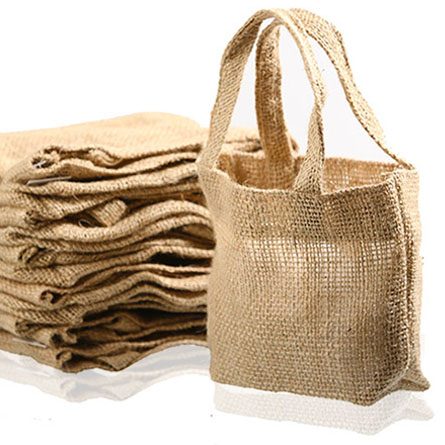Jute bags, renowned for their eco-friendly attributes and aesthetic appeal, have gained substantial traction in the global market. However, in Africa, a particular nation stands out for its significant contribution to this green revolution: Nigeria. The country’s jute bag industry has not only made waves domestically but has established a formidable leadership position in the African market. Let’s delve deeper into the historical, economic, and innovative drivers behind this dominance.
Nigeria’s relationship with jute has roots that stretch back centuries. Traditionally, jute was employed in various forms, from ropes for local construction to rudimentary storage solutions. Over time, the versatility of jute became apparent, and its potential as a primary material for bags began to shine.
This evolution wasn’t merely a transition from one product to another; it was a testament to Nigeria’s ability to recognize and adapt to the needs of the changing times. The birth of jute bag manufacturing in the country was, thus, a blend of tradition, foresight, and adaptability.

Factors Driving Growth Jute Bags Manufacturers in Nigeria
Several elements have fueled Nigeria’s ascendancy in the jute bag manufacturing arena:
Government policies and incentives: The Nigerian government, realizing the ecological and economic potential of jute bags, has implemented policies that encourage the growth of the industry. From subsidies to training programs, there has been significant support at the federal and state levels.
Nigerian entrepreneurial spirit and innovation: Nigerians are renowned for their business acumen and innovative drive. In the jute bag sector, this spirit translates to design innovations, efficient production methods, and aggressive marketing strategies that resonate with both local and international audiences.
Availability of raw materials and labor: Nigeria boasts vast jute farms, ensuring a steady supply of raw materials. Moreover, the nation’s workforce is young, skilled, and increasingly aware of sustainable practices, making it an ideal human resource for the industry.
Comparison with Other African Nations
While several African nations have ventured into the jute bag industry, Nigeria’s dominance is pronounced. Here’s why:
Infrastructure: Over the years, Nigeria has invested in infrastructural development catering to the jute industry – from processing plants to transportation facilities, setting it apart from many of its peers.
Market Penetration: Nigerian jute bag manufacturers have managed to tap into both rural and urban markets effectively, leveraging a mix of traditional and digital marketing strategies.
Quality and Design: The intrinsic blend of Nigerian cultural motifs with modern designs has made the country’s jute bags immensely popular, not just within Africa but globally.
Challenges Overcome
Like any burgeoning industry, the jute bag sector in Nigeria faced its share of obstacles:
Infrastructure challenges: Despite the advancements, manufacturers often grapple with power outages, transportation bottlenecks, and inconsistent water supply. However, adaptive strategies, like the use of solar power and rainwater harvesting, have been employed to navigate these challenges.
Marketing and export hurdles: Penetrating international markets requires compliance with numerous standards and regulations. Nigerian manufacturers, realizing this, have sought international certifications and adopted best practices to make their products globally acceptable.
Adapting to global standards and trends: Staying relevant in the global market demands constant evolution. From introducing eco-friendly dyes to ensuring sustainable farming practices, the Nigerian jute bag industry has been proactive in its approach.
Conclusion
The story of Nigerian jute bag manufacturers is one of resilience, innovation, and an unwavering commitment to sustainability. By marrying age-old traditions with the needs of the modern world, Nigeria has positioned itself as a leader in the African jute bag market. As the world increasingly turns towards sustainable solutions, Nigeria’s jute bag industry, with its rich history and future-ready approach, is poised for even more significant global prominence.

